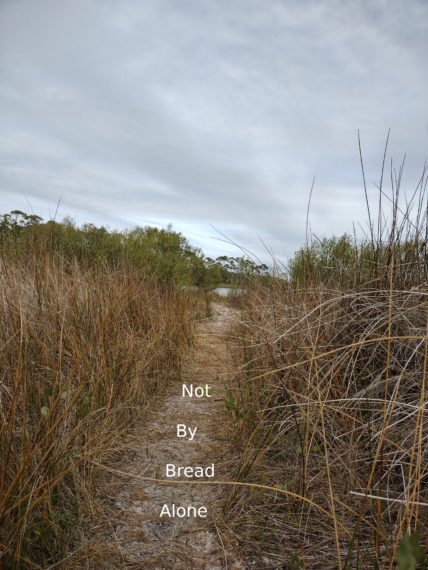Deuteronomy 8:1–10
Introduction
The passage belongs to the second of five discourses of Moses in the book of Deuteronomy. The second discourse began with chapter 4:11 to 11:32. In 8:1–10, Moses pressed upon the various motives of obedience arising from their past, present and future. They were to “remember the past”; “consider the present” and “anticipate the future” Obedience had to be acted in their hearts and led them forth to holy obedience to the God who was their Protector and Provider from Egypt to Canaan.






Discussion
1. Remembering the Past
Their past was a Test of Privation. As slaves of Egypt, there was no freedom but God gave them a reluctant deliverer in the person of Moses. On their way to Canaan, hostile nations attacked them but allowed them to prevail. When they were about to enter Canaan for the first time, they were dissuaded by the ten spies not to enter the land, because it will be an act of national suicide. Forty days of spying Canaan went to nothing. (Numbers13:2, 25). In God’s anger God let them wander in the wilderness for forty years. Some scholars suggest that the punishment was one year for one day that was spent.
In those forty years of wandering, God was their Provider. He provided them with clothing that did not rot and shoes to protect their feet, manna and quails to eat and water to drink. Yet they continued to provoke God’s wrath through their murmurings and rebellion. It was during this time that Israel was being “schooled.” They learned that every move they made needed help, direction and commandment of God. They were shown the absolute necessity of heeding and obeying the word of God.
2. Consider the Present
Moses wanted the Israelites to listen attentively to the commandments of the Lord. God is giving them the moral motivation to obey. Israel had failed the expectations of God. Despite their failures, the path of obedience is open to any Israelite who will emulate the faithfulness of their father Abraham. Like a father who loves his son, God will discipline them.
3. Anticipate the Future
The Israelites will enter the land of plenty and prosperity. There they will be tempted to think that in their abundance, they do not need to depend on God for their material needs.
It is also a test of time. The longer they enjoy prosperity, the greater the danger of forgetting the Lord. Should that ever happen, Moses solemnly testified that God will destroy them as He had destroyed the Canaanites before them.
Verse 3: “And he humbled thee, and suffered thee to hunger, and fed thee with manna, which thou knowest not, nor did your fathers know; that he might make thee know that man doth not live by bread only, but by every word that proceedeth out from the mouth of God.”
This verse of special interest and importance from the fact that it was the first quotation from the book of Deuteronomy in Jesus’ conflict with Satan after spending forty days and nights in the wilderness (Matthew 4:3–4; Luke 4:4)
Here are some things for us to ponder about:
(1) Jesus was alone in the desolation of a desert, lonely and hungry but he was there for God.
(2) Jesus was there to show how to meet the Enemy in his varied temptations. He showed how a follower should live when face to face with the “lust of the eyes. lust of the flesh and the pride of life.”
(3) He showed how man would triumph. Man could triumph simply by the word, every word of that comes from the mouth of God. Jesus did not use his divine power but as the humble, dependent, self-emptied obedient man.
(4) Jesus did not reason with Satan and neither should we. The only weapon we have in our possession is the simple, precious written word of God. As the natural life is sustained by bread, so the spiritual life is sustained by the word of God. Confronted with the Scriptures, Satan is powerless. He could do nothing with a man who could only actonn the authority of the word of God.
References:
Commentaries of Adam Clark, James Smith, Bruce Obert and C. H. MacKintosh.
Toronto, Ontario

